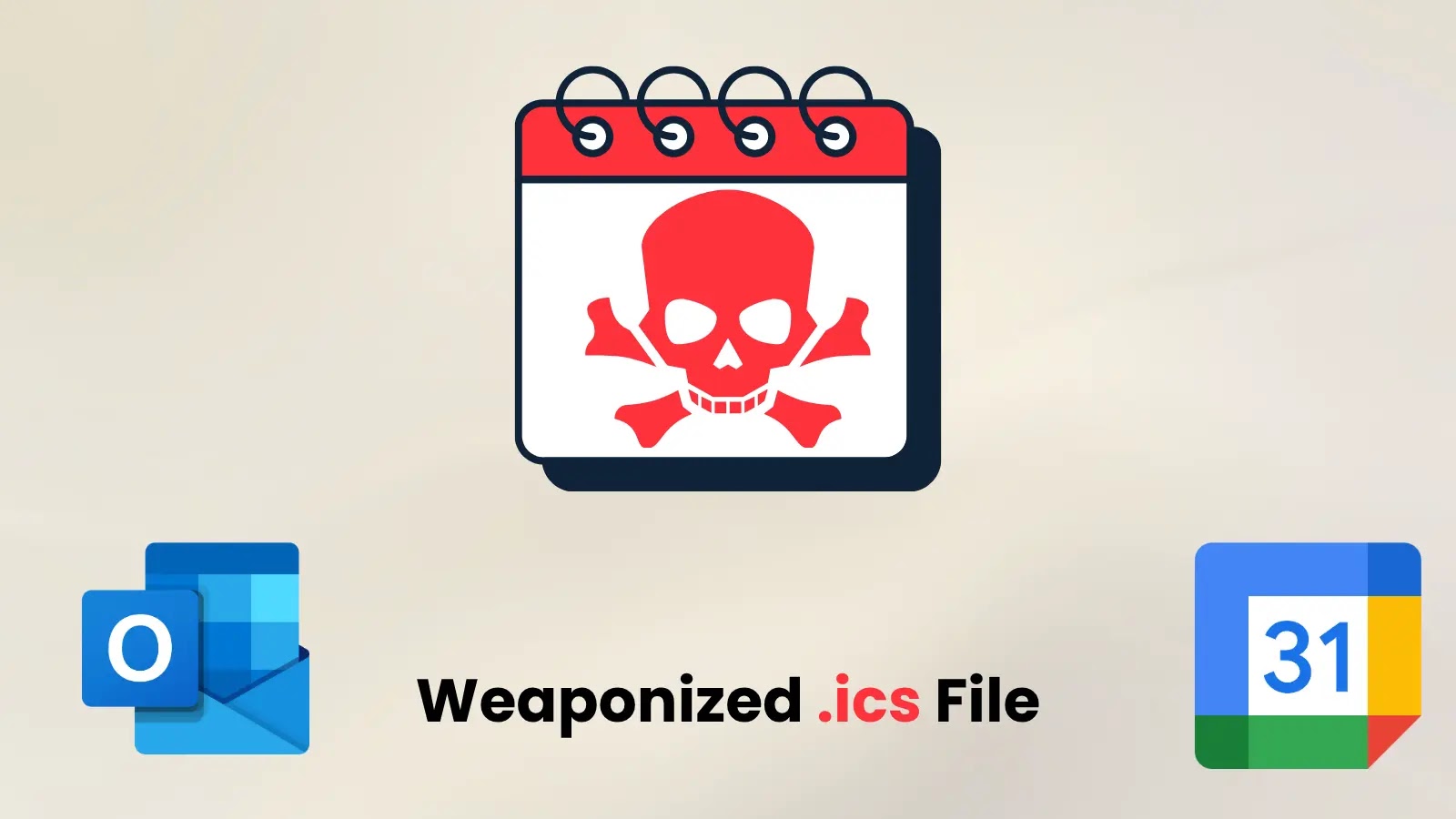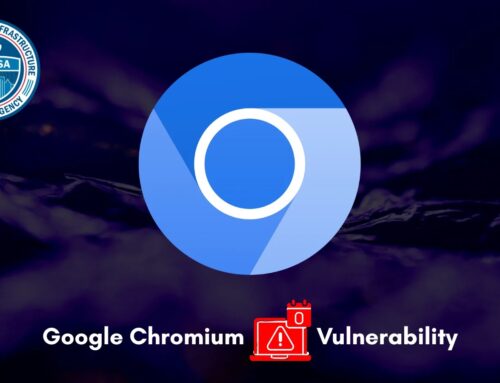
Hackers Weaponizing Calendar Files as New Attack Vector Bypassing Traditional Email Defenses
The Unseen Threat: How Calendar Files Are Becoming a Hacker’s New Weapon
Cybersecurity professionals operate in a constant state of vigilance, adapting to new attack vectors as quickly as malicious actors invent them. Traditional email defenses, once the cornerstone of digital perimeter security, are increasingly being outmaneuvered. A significant and stealthy shift in tactics has emerged: the weaponization of calendar files, specifically iCalendar (.ics) files. These seemingly innocuous digital scheduling tools are now being exploited to bypass established security protocols, launching sophisticated credential phishing campaigns, delivering malware, and even exploiting zero-day vulnerabilities. This post delves into how this new attack vector operates and, crucially, what steps organizations can take to defend against it.
The Deceptive Simplicity of iCalendar Attacks
The ingenuity of weaponizing calendar files lies in their inherent design. iCalendar files are plain-text documents, universally trusted, and integrated seamlessly into virtually all modern email and calendar systems. This trust is precisely what hackers are exploiting. Unlike an email attachment that might raise red flags, a calendar invitation often registers as a legitimate, expected communication, gliding past conventional spam filters and even some advanced threat detection systems.
The .ics file format allows for embedded links, descriptive text, and even attachments (though less common in malicious calendar invites, the primary vector focuses on embedded links). Attackers craft invitations that appear legitimate – perhaps a meeting change, a webinar registration, or an important internal announcement. Within these invites, seemingly innocent links are embedded, leading victims to:
- Credential Phishing Sites: These sites are meticulously designed to mimic legitimate login pages from popular services (e.g., Microsoft 365, Google Workspace, internal company portals) to steal user credentials.
- Malware Downloads: Clicking a link can initiate the download of malicious payloads, such as ransomware, spyware, or remote access Trojans (RATs).
- Zero-Day Exploits: In more sophisticated attacks, a crafted link or even the calendar file itself could potentially trigger a zero-day vulnerability in a calendar application or operating system, leading to arbitrary code execution or system compromise.
Over the past year, calendar-based phishing has alarmingly risen to become the third most common form of email social engineering, underscoring its effectiveness and widespread adoption by threat actors. This trend highlights a critical blind spot in many organizations’ cybersecurity strategies.
Why Traditional Defenses Fail
The primary reason calendar file attacks bypass traditional email defenses lies in the perceived “trustworthiness” of the .ics format. Email gateways and spam filters are typically configured to scrutinize attachments and email body content for suspicious keywords, malicious URLs, or executable files. However, a benign-looking calendar invite, even one with a malicious link, may not trigger these same alerts. The invitation itself is not malware; the danger lies in the user’s interaction with the embedded content after accepting or clicking through. Furthermore, many security solutions are not designed to deeply parse and analyze the dynamic content within calendar invitations with the same rigor applied to email content.
Remediation Actions: Fortifying Your Calendar Defenses
Mitigating the threat of weaponized calendar files requires a multi-layered approach, combining technological safeguards with robust user education.
- Enhanced Email and Calendar Security Gateways: Implement advanced threat protection (ATP) solutions that are specifically designed to analyze not just email bodies and attachments, but also the content within calendar invitations. Look for features that perform URL sandboxing and link analysis even for embedded calendar links.
- Strict Link Analysis and Rewriting: Configure your email security solution to rewrite all URLs, including those in calendar invites, to pass through a secure gateway that scans for malicious content in real-time before the user accesses the site.
- Disable Automatic Acceptance of Calendar Invites: Encourage or enforce policies where calendar invitations are not automatically added to a user’s calendar. Require manual intervention, allowing users to review the sender and content before acceptance.
- User Awareness Training: This is paramount. Educate employees about the risks associated with unexpected calendar invitations. Train them to:
- Scrutinize the sender of any calendar invitation, even if it appears to be from an internal source.
- Be wary of invitations from unknown senders or those containing unusual meeting topics or urgent calls to action.
- Avoid clicking on links within calendar invites without first verifying the sender and the legitimacy of the link. If in doubt, type the legitimate URL directly into the browser.
- Report suspicious calendar invites to the IT or security team.
- Implement Multi-Factor Authentication (MFA): Even if credentials are compromised via a phishing link from a calendar invite, MFA can prevent unauthorized access to accounts.
- Regular Security Audits: Periodically audit your email and calendar system configurations to ensure they are optimized for detecting and preventing emerging threats.
The Path Forward: Proactive Defense in an Evolving Threat Landscape
The weaponization of calendar files is a stark reminder that cyber threats are constantly evolving, exploiting novel pathways that lie outside the scope of traditional defenses. The reliance on the inherent trust placed in certain file types and communication protocols creates lucrative opportunities for attackers. Organizations must move beyond reactive measures and embrace a proactive security posture that anticipates and defends against these emerging vectors.
By implementing advanced security solutions, enforcing stringent policies, and empowering users with comprehensive security awareness training, businesses can significantly reduce their susceptibility to calendar-based attacks. The battle against cybercrime is ongoing, and staying informed and agile in our defense strategies is not just an advantage—it’s a necessity.





